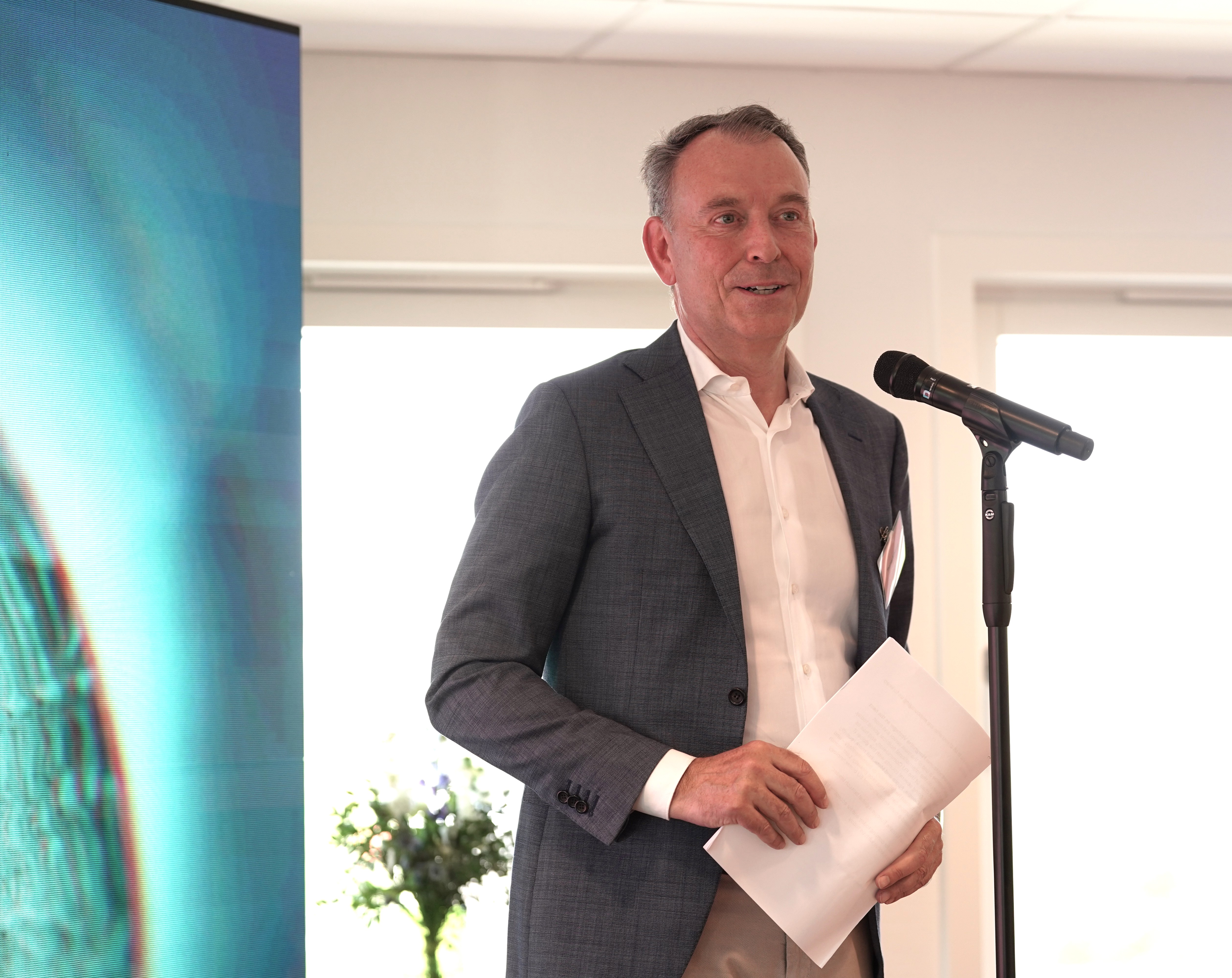
OpenCell Partners with King's College and Opentrons to Create Affordable Shipping Container COVID-19 Testing Lab
OpenCell Partners with King's College and Opentrons to Create Affordable Shipping Container COVID-19 Testing Lab
(LONDON, UK - May 21, 2020) - Scientists from OpenCell.bio and King's College London, in partnership with Opentrons Labworks, have developed a low-cost rapidly deployable COVID testing lab inside a shipping container that can process 2,400 tests per day.This is the first fully functional lab that can be immediately deployed anywhere in the world for COVID testing. The system uses low-cost liquid handling robots developed by Opentrons Labworks to perform a qPCR (the gold-standard nucleic acid detection test) to detect the presence of the SARS-CoV-2 virus.This system design is open-source and the test relies on reagents and consumables that are not single-source or proprietary. This means it is free from the supply chain restrictions faced by many COVID-19 testing labs that all require reagents from the same few suppliers. Given Opentrons ability to rapidly deploy lab automation, and the shipping container form factor of this testing lab, this system is ready to be sent wherever automated testing bandwidth is needed.

The team has just been awarded an Innovate UK grant for business-led innovation in response to global disruption to accelerate the translation of their work from one proof-of-concept mobile-lab to many labs running much needed tests. OpenCell CEO Helene Steiner says, “This work is a vital step to increasing the number of accredited labs capable of performing COVID testing. Through Innovate UK support as well as an incredible team, we are working closely with regulators to ensure our testing lab system remains capable of high quality, low cost and meets the rigorous standards required to perform population testing.”Opentrons Co-founder and CPO Will Canine comments: “Opentrons has already deployed 250+ robots to do COVID-19 testing, and now with this shipping container form factor, we can deploy hundreds more wherever automated testing bandwidth is needed." Lead author Kenneth Walker, who just completed his Ph.D. in synthetic biology at Imperial College, states: ”I was due to join the OpenCell team in April but started early because I felt a duty to respond to the international crisis. I have experience in qPCR testing and was able to rapidly adapt this to COVID testing. We managed to bring together an experienced team in a short space of time and in particular solve the big challenge of doing tests quickly and at low cost. The automation work required was a big step and this is the first time a team has done this with open-source robotics that don’t cost the earth.”Dr Mark Zuckerman, head of department at the South London Specialist Virology Centre at King’s College Hospital has, together with medical colleagues and a team of biomedical and clinical scientists, rapidly transformed the department in response to the COVID crisis and says: “our laboratory has responded to this crisis superbly with a team of highly motivated, enthusiastic and skilful staff and over the last months we have pivoted our laboratory to COVID testing, whilst carrying out other clinical diagnostic services. We have gone from a very busy clinical diagnostic molecular workload, as the hospital has a complex population of patients, to performing hundreds of COVID tests daily. However, this will be difficult to sustain once the transplant and other services get into full swing and through our partnership with OpenCell we are seeking to fast track the required accreditation to make these laboratories available nationally and internationally to control the epidemic in workplaces, schools and care homes to help us all return to normal life. ”The validation data and open-source protocols will appear on BioRxiv, a popular preprint research database that has been used extensively to share COVID-19 testing information as it develops. To learn more about this system, visit https://www.opencell.bio/coronavirus. To learn more about this COVID-19 testing system, visit https://www.opencell.bio/coronavirus. About OpenCell:OpenCell transformed 70 shipping containers in White City London into affordable biolaboratories for biotechnology start-ups. Founded in 2018 by Helene Steiner and Dr. Thomas Meany with the goal of making biotechnology more accessible and affordable. To learn more, visit https://www.opencell.bio. About Opentrons Labworks:Opentrons makes automation accessible for any lab, starting with affordable pipetting robots for biologists. With its easy-to-use hardware and an open software platform, Opentrons automates manual lab work and empowers collaborative research for life scientists. Opentrons has helped over 1,500 labs in 45 countries save time, money and lab costs—including 47 of the top 50 academic universities in the world such as MIT, Oxford, and Stanford, and 9 of the top 10 pharmaceutical companies such as GSK, Merck, and Novartis. To learn more, visit https://www.opentrons.com. **Direct queries to Helene Steiner: info@opencell.bioCompany webpage: opencell.bioProject webpage: opencell.bio/coronavirusSocial Media @opencelllondonPictures and Graphic: credit OpenCellYoutube Channel: Open Cell MediaPrevious Press:- BBC Click, “Tech and the test for Covid19” - television - first aired 21 Mar 2020- BBC London, first aired 1.30pm 18 Mar 2020 - television- Observer, “Buildings made from fungi? Meet London’s pop-up bio-lab innovators,” Tom J Ireland, first published Sat 25 Aug 2018 18.00 BST - newspaper- Guardian, “Ruby Tandoh: how I was turned into a human cheese,” Ruby Tandoh, first published Mon 13 May 2019 10.00 - newspaper



.svg)








-min.png)


.gif)